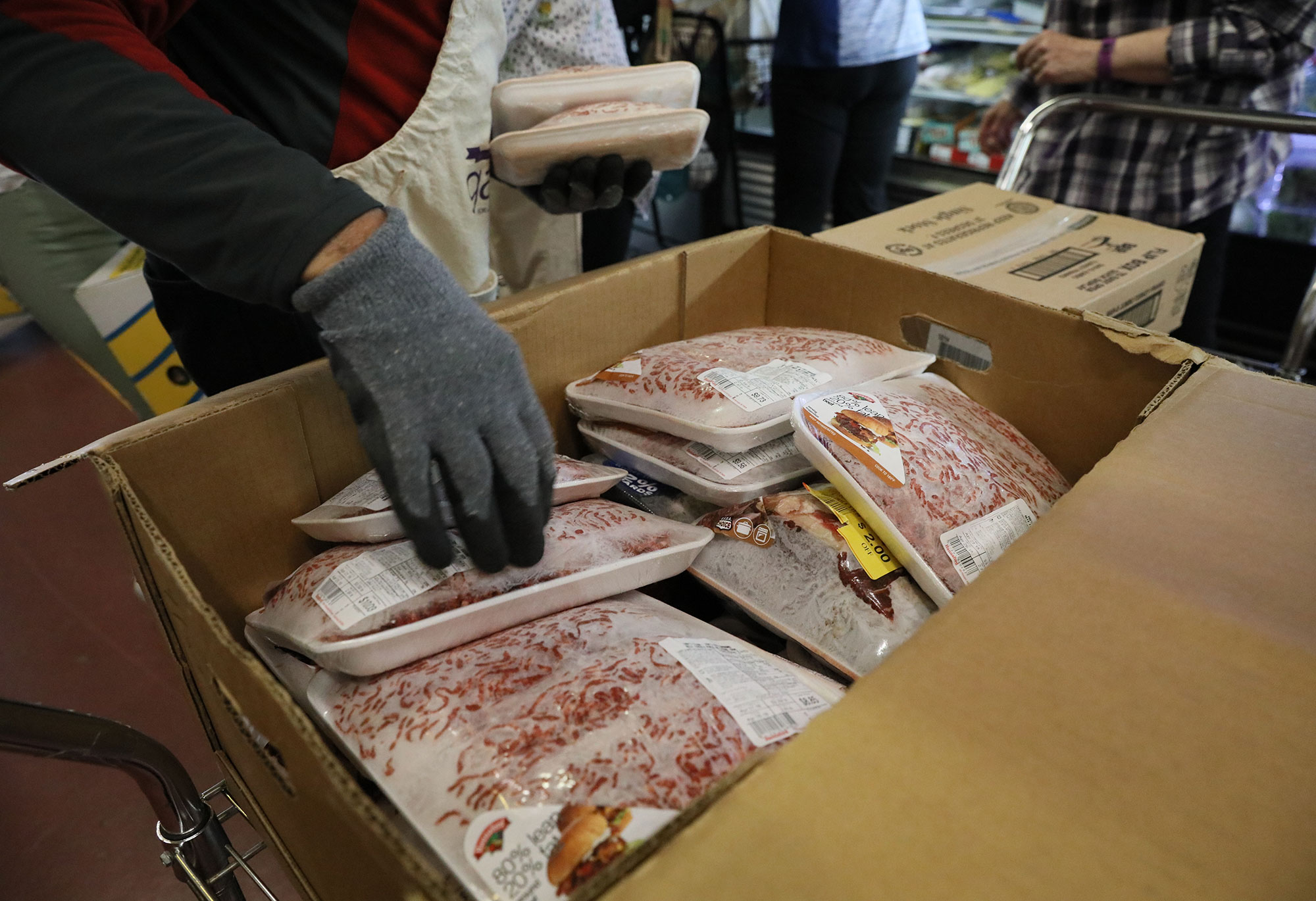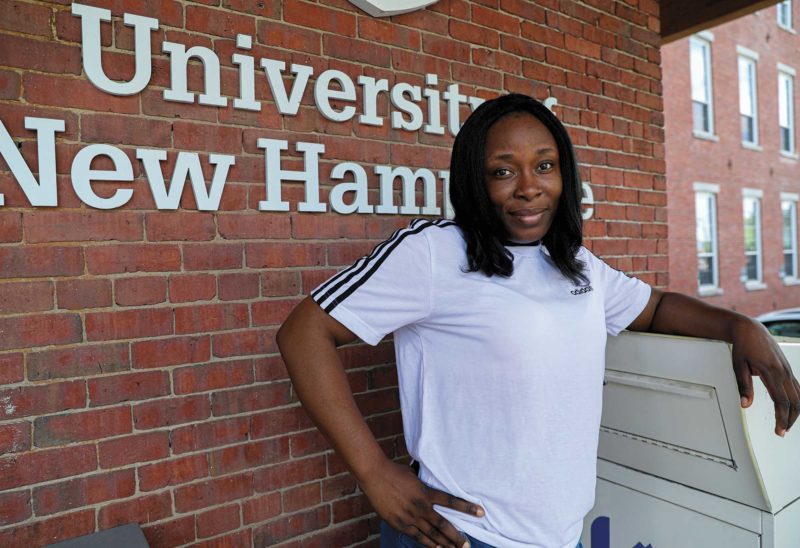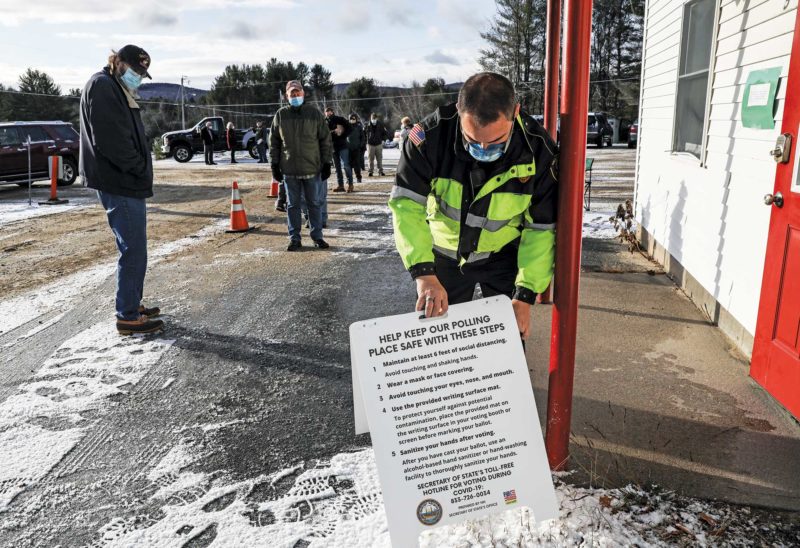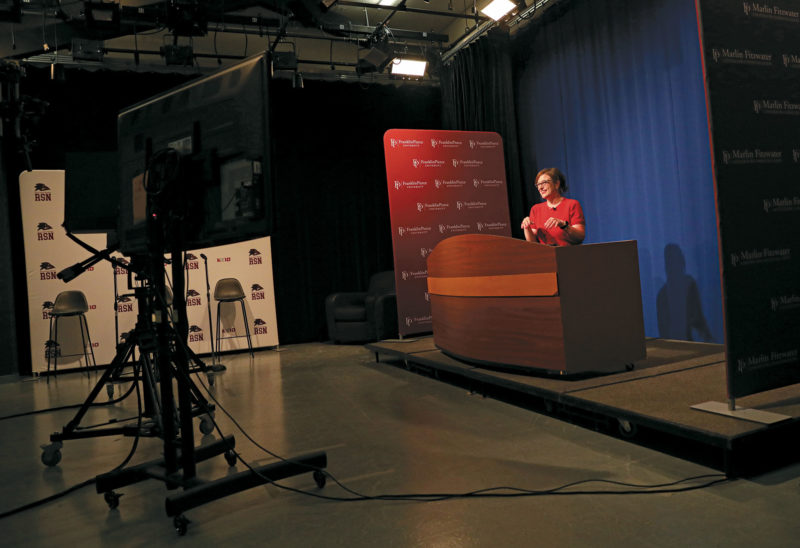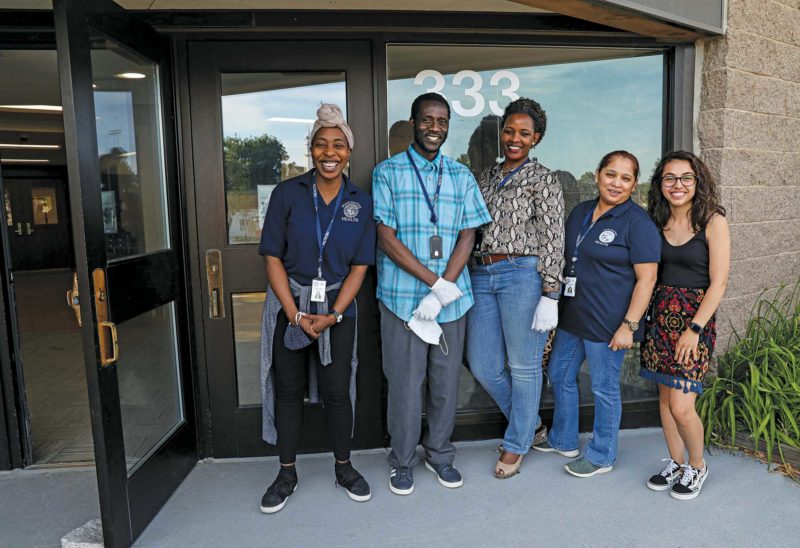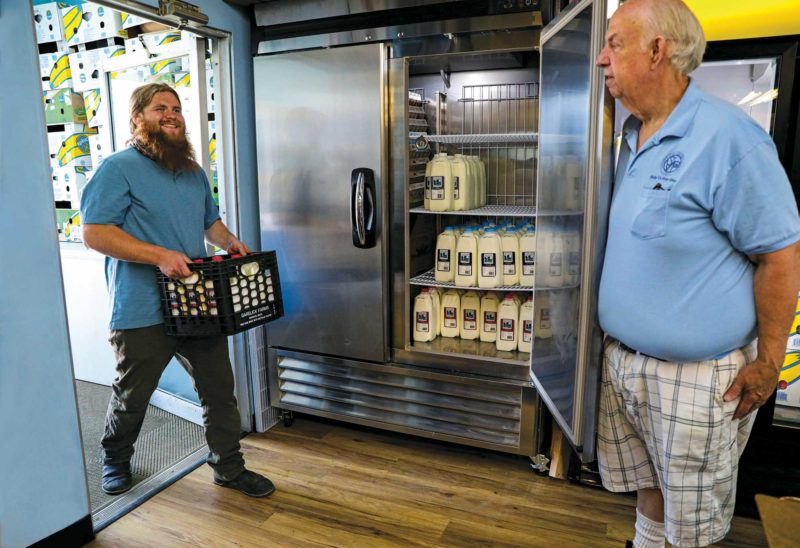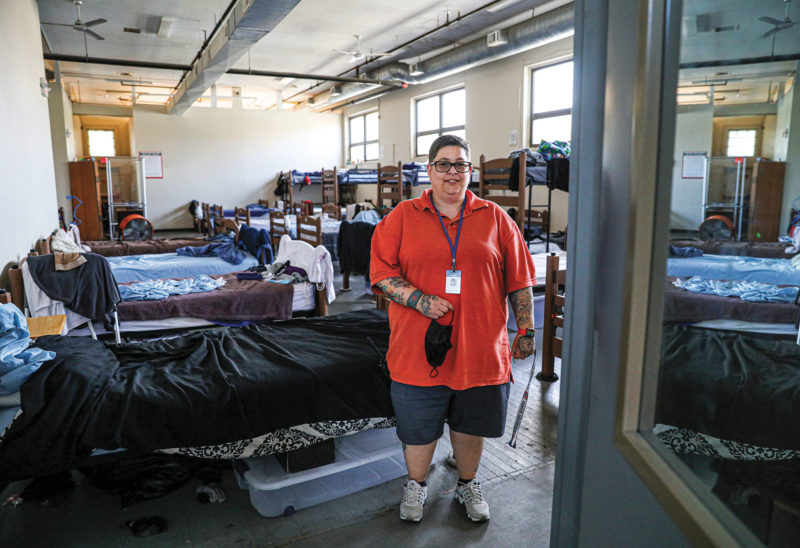When families come to the food pantry at the Grace Community Church in Farmington on Thursdays, they can now each leave with a half-gallon of fresh milk. The real stuff: Perishable, full of calcium for building strong bones, great on breakfast cereal.
For many families, having fresh milk — and other perishable food — is a huge deal.
The food pantry is able to offer those items now because it has a brand-new commercial-grade 78-inch by 58-inch refrigerator in which to keep fresh food cold. That unit — and 16 more like it around the state — were made possible by a grant from the Charitable Foundation’s Community Crisis Action Fund.
“Oh, it is so nice…and you should see the difference on people’s faces when you offer it to them,” said Cheriene Painter, mission and outreach director at Grace Community Church. “When you say ‘today, we have fresh milk and yogurt and eggs and shredded cheddar cheese,’ and they say ‘Are you serious?’”
The grant, which went to the New Hampshire Food Bank, helped purchase improved cold-storage equipment from a New Hampshire vendor for 17 pantries in need in the Granite State. The Food Bank estimates that up to 60 percent of pantries around the state have insufficient refrigerated storage capacity — a significant barrier to those organizations being able to accept and distribute fresh and healthy foods that need refrigeration. The focus in this project is on pantries in population centers in cities and larger towns.
Since the COVID-19 pandemic struck, volunteers and staff members at food pantries and the Food Bank have worked tirelessly to meet increased community demand.
“Our demand is up 50 percent so the agencies have 50 percent more product that they are trying to distribute,” said Eileen Liponis, executive director of the New Hampshire Food Bank. “Right now, for instance, there is a lot of milk coming through the USDA program that, unless you have the capacity to store, you cannot distribute.”
The Food Bank is also working to increase ties between local pantries and local food producers. It recently piloted the “New Hampshire Feeding New Hampshire” project, which allowed pantries to get food directly from local farms — including fresh vegetables, fruits, meat and eggs.
The new refrigeration unit made it easier for the Grace Church pantry to participate in that program — cutting down on the number of times volunteers had to drive out to pick things up, since food could be kept cool over a period of days.
The economic fallout from the COVID pandemic continues to drive a demand for food assistance across the state. According to research from Feeding America, since the onset of the pandemic, one in seven people in New Hampshire is now food insecure — meaning they do not know where their next meal is coming from. That represents a 57 percent increase since before the pandemic struck.
A new upright freezer is helping Vaughan Community Services in North Conway, which serves more than 100 families each month, to accept and freeze more meat to be distributed.
Jennifer Perkins, who runs that program, said that they actually saw fewer families than expected over the summer, “but once those (unemployment) checks stopped coming, there was an increase in new families and an increase in homelessness. And here we are coming into the fall and winter.”
The Claremont Soup Kitchen, which serves dinner seven nights a week and breakfast and lunch Monday-Friday, will be taking delivery of a new refrigeration unit soon. The program also operates a food pantry and a free summer meals program for children.
Cindy Stevens, who runs that program, said that “immediately, it was a pretty astronomical increase” when the pandemic and ensuing economic fallout hit. “We doubled our food costs. Then there was a point where we kind of steadied out, and recently our numbers have increased again. It has been a pretty consistent 8-10 new families signing up per week.”
A separate grant to Main Street Warner, Inc., which operates a food pantry for Warner and surrounding towns, will cover the cost of a walk-in freezer. The new freezer — along with new space that may soon be outfitted as a commercial kitchen — will allow the food pantry to process, store and distribute more fresh, local, healthy food to the families it serves.
“We work with area farmers to buy and distribute fresh produce, but the pantry had limited refrigeration,” said Neil Nevins of Main Street Warner. “With a walk-in freezer, we will be able to process fresh produce and other products and store them and distribute them to the community.”
The Charitable Foundation is investing in the long-term sustainability and resiliency of New Hampshire’s food system. Investments also include support of nonprofit farms and food hubs that are working to increase demand for, and equitable access to, locally grown food.
“The COVID-19 pandemic reminded us all how important local food systems are — but it hit people who were already struggling the hardest,” said Ben Amsden, a senior program officer at the Charitable Foundation. “And something as simple as improved refrigeration means the difference between kids in need eating canned and processed food only — or getting fresh milk and vegetables.”

